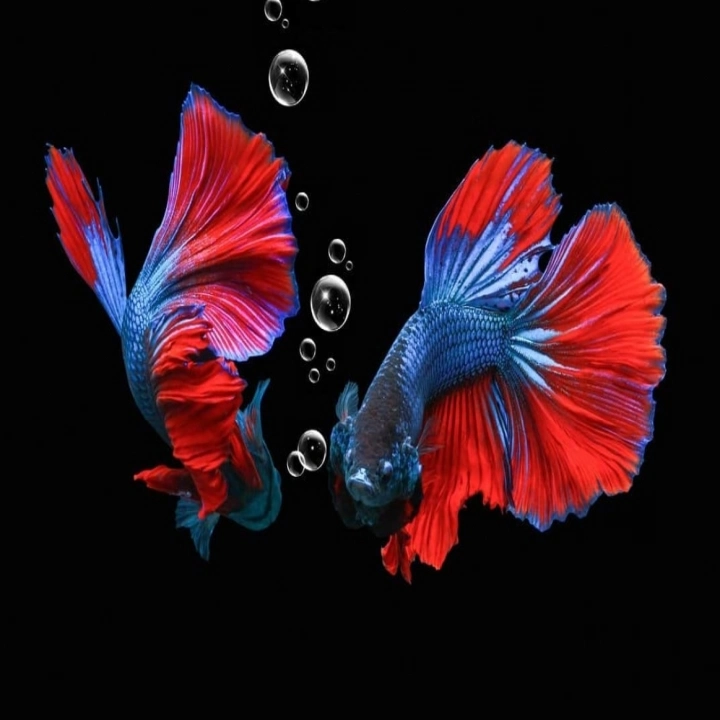Everything You Need to Know About Betta Fish
Betta fish, scientifically known as Betta splendens, are a captivating and colorful species of aquarium fish that have captured the hearts of fish enthusiasts worldwide. Also commonly referred to as Siamese fighting fish, bettas are beloved for their vibrant colors, unique personalities, and relatively low maintenance requirements. In this comprehensive guide, we will explore everything you’ve ever wanted to know about betta fish, from their history and natural habitat to their care, breeding, and where to find bettas for sale.
The History and Natural Habitat of Betta Fish
Betta fish are native to the shallow waters of Southeast Asia, primarily found in Thailand, Cambodia, Vietnam, and Laos. They inhabit slow-moving waters, including rice paddies, shallow ponds, and even drainage ditches. In the wild, bettas have developed various adaptations to survive in these conditions, such as their labyrinth organ, which allows them to breathe air directly from the surface.
The name “betta” is derived from the Thai word “ikan bettah,” which means “biting fish.” This name is aptly given due to their aggressive nature, especially when two males encounter each other. Betta fish are famous for their territorial behavior and, in their natural habitat, will fight to protect their territory and establish dominance.
Betta Fish Varieties and Colors
One of the most enticing features of betta fish is their diverse range of colors and fin types. Betta enthusiasts have selectively bred these fish for generations, resulting in a stunning array of colors and fin variations. Here are some of the most popular betta fish varieties:
- Veil Tail Betta: This is the most common betta variety with long, flowing fins. They are available in a wide range of colors.
- Crowntail Betta: Crowntail bettas are known for their unique fin type, with the webbing between the rays of their fins reduced, giving them a spiky appearance.
- Halfmoon Betta: Halfmoon bettas have tails that can spread out to a 180-degree angle, forming a perfect semicircle when fully extended.
- Delta Tail Betta: Delta tail bettas have tails that resemble a triangle when fully flared, though not as wide as those of halfmoon bettas.
- Double Tail Betta: These bettas have two distinct tails, making them unique in their appearance.
- Plakat Betta: Plakats are known for their shorter fins and a body shape that more closely resemble their wild counterparts.
- Koi Betta: Koi bettas have a marbled pattern, reminiscent of koi fish, with bold red, white, and black patches.
- Dragon Scale Betta: These bettas have unique, reflective scales that give them an enchanting, dragon-like appearance.
- Cellophane Betta: Cellophane bettas are almost transparent, giving them a unique and intriguing look.
- Marble Betta: Marble bettas have a marbled pattern on their bodies, often in shades of blue, black, and white.
Betta fish come in a wide range of colors, from vibrant reds and blues to pastel shades of pink and yellow. The colors and patterns are the result of selective breeding, and breeders are continually working to develop new and exciting combinations.
The Care and Maintenance of Betta Fish
Caring for betta fish is a rewarding experience, but it requires attention to detail and a commitment to providing the best possible environment for these beautiful fish. Here are the key aspects to consider when caring for bettas:
Tank Size:
Betta fish are often kept in small containers, such as bowls or vases, but this is not ideal. A more suitable environment is a tank with a capacity of at least 5 gallons. Larger tanks provide better water stability and more room for your betta to swim.
Water Quality:
Maintaining clean water is essential for the health of your betta fish. Betta fish are sensitive to ammonia and nitrite, so it’s crucial to cycle your tank properly and perform regular water changes. A water heater and filter are also recommended to maintain a stable environment.
Water Temperature:
Bettas are tropical fish and thrive at a temperature between 78-80°F (25-27°C). A submersible aquarium heater can help maintain the correct water temperature.
Water Parameters:
Bettas prefer slightly acidic water with a pH range of 6.5-7.5. It’s important to regularly test the water parameters to ensure they are within the optimal range.
Tank Decoration:
Bettas enjoy having hiding spots and places to explore in their tanks. Provide live or silk plants, caves, and smooth decorations to create an interesting and stimulating environment.
Betta Diet:
Bettas are carnivorous and require a high-protein diet. They can be fed betta pellets, live or frozen foods like brine shrimp and bloodworms, and even some high-quality flakes.
Social Behavior:
Due to their territorial nature, male bettas should not be housed together, as they will often fight. However, female bettas can coexist in small groups, known as sororities, as long as the tank is appropriately sized and adequately planted to provide hiding spots.
Tank Maintenance:
Regular tank maintenance is vital. Perform partial water changes every week to remove waste and maintain water quality. Clean the tank decorations and substrate to prevent the buildup of detritus.
Health Care:
Keep an eye on your betta’s health. Look out for signs of illness, such as changes in behavior, loss of appetite, or unusual physical symptoms. Quarantine new fish before introducing them to an established tank to prevent the spread of diseases.
Conclusion
In conclusion, Betta fish, also known as Siamese fighting fish, are captivating and colorful aquatic pets that have a rich history and a multitude of fascinating characteristics. These resilient and beautiful fish have come a long way from their origins as fighters in Southeast Asia to being cherished members of aquariums worldwide.
When considering caring for Betta fish, it’s crucial to provide them with the right environment. A well-maintained tank with the proper water parameters, filtration, and decorations can ensure that your Betta thrives and exhibits its vibrant colors and engaging behaviors.
Understanding Betta fish behavior is essential for keeping them happy and healthy. Whether they’re flaring, building bubble nests, or hunting, these behaviors are all part of the charm of these remarkable creatures. Recognizing when something is amiss through their actions can help prevent and address potential health issues.
If you’re interested in taking your Betta hobby to the next level, breeding Betta fish can be a rewarding endeavor. Breeding requires careful planning, meticulous tank setup, and the selection of the ideal breeding pair. While it can be challenging, successfully breeding Betta fish can provide you with a deeper appreciation of these creatures and the joy of raising their fry.
Lastly, if you’re looking to add a Betta to your collection or start your Betta-keeping journey, finding the right place to purchase them is crucial. Many fish enthusiasts look for “bettas for sale” to add unique and diverse Betta varieties to their tanks.
In your search for Betta fish, you can explore several options. Local fish stores often have a selection of Betta fish, and you can see them in person, which allows you to choose a healthy and vibrant fish. Additionally, many online retailers specialize in Betta fish and offer a wide range of varieties, colors, and even rare strains that you may not find locally. These online vendors often have detailed descriptions and images of the fish they have available for sale, making it easier to make an informed choice.
When buying Betta fish, it’s essential to consider the source’s reputation and the welfare of the fish. Ensure that the fish are healthy, and well-cared for and that the seller adheres to responsible breeding practices.
In the end, Betta fish are not just pets; they are living works of art. Their vibrant colors and distinctive personalities make them a popular choice for aquarists of all levels of experience. From their rich history to their care, behavior, and even breeding, there’s a wealth of information to explore and enjoy when it comes to Betta fish. So, whether you’re a seasoned fish enthusiast or just starting your journey into the world of aquatics, Betta Fish are sure to provide you with endless fascination and delight.







